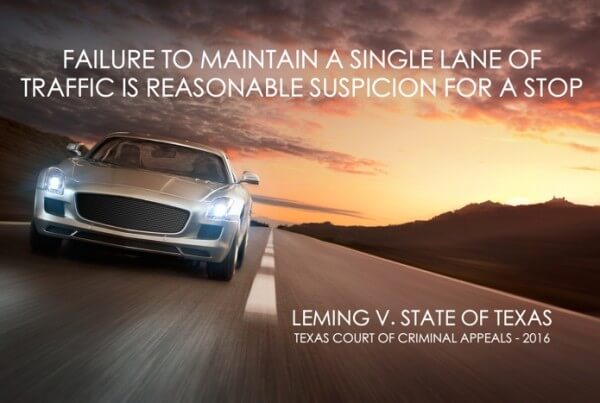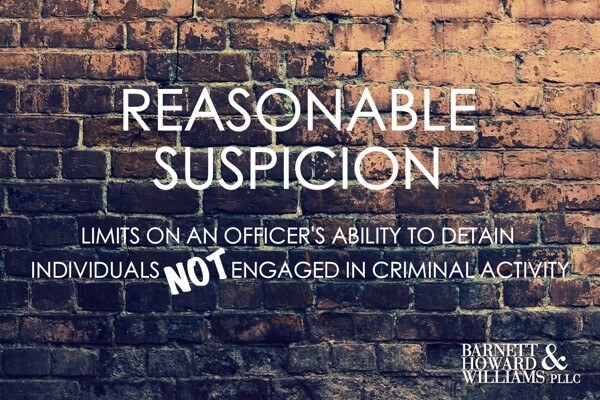Is “Unconfirmed” Insurance Enough to Justify a Traffic Stop?
 While conducting surveillance on an illegal immigration investigation, Homeland Security agents saw a vehicle leave a residence suspected of harboring undocumented immigrants. The agents notified local police officers to be-on-the-lookout for the vehicle. While on patrol, an officer began to follow the defendant’s vehicle because it matched the description of the vehicle from Homeland Security. While following the vehicle, the local officer entered its license plate number into a computer database designed to return vehicle information such as insurance status. The computer indicated the insurance status was “unconfirmed.” Based on his experience using this system, the officer reasoned that the vehicle was most likely uninsured, which is, of course, a violation of Texas law. The officer then conducted a traffic stop of the vehicle and learned that the defendant was in the United States illegally. The officer issued the defendant citations for violating the insurance requirement and driving without a license while he waited for the Homeland Security agents to arrive.
While conducting surveillance on an illegal immigration investigation, Homeland Security agents saw a vehicle leave a residence suspected of harboring undocumented immigrants. The agents notified local police officers to be-on-the-lookout for the vehicle. While on patrol, an officer began to follow the defendant’s vehicle because it matched the description of the vehicle from Homeland Security. While following the vehicle, the local officer entered its license plate number into a computer database designed to return vehicle information such as insurance status. The computer indicated the insurance status was “unconfirmed.” Based on his experience using this system, the officer reasoned that the vehicle was most likely uninsured, which is, of course, a violation of Texas law. The officer then conducted a traffic stop of the vehicle and learned that the defendant was in the United States illegally. The officer issued the defendant citations for violating the insurance requirement and driving without a license while he waited for the Homeland Security agents to arrive.
Defendant Challenges the Stop, Arguing that the Officer Lacked Reasonable Suspicion.
The United States government charged the defendant with conspiracy to harbor illegal aliens. The defendant argued that the “unconfirmed” insurance status obtained from the state computer database did not provide the officer reasonable suspicion to stop the defendant. The trial court was unconvinced by this argument.
The 5th Circuit Court of Appeals recognized that it had not yet addressed whether a state computer database indication of insurance status establishes reasonable suspicion as a matter of law. However, the court commented that the Sixth, Seventh, Eighth, and Tenth Circuits have found that such information may give rise to reasonable suspicion as long as there is either some evidence suggesting the database is reliable or at least an absence of evidence that it is unreliable. In this case, the court followed the other circuits that have decided this issue and held that a state computer database indication of insurance status may establish reasonable suspicion when the officer is familiar with the database and the system itself is reliable.
5th Circuit Upholds the Stop, Finding that “Unconfirmed” Insurance Creates Reasonable Suspicion.
Here, the court found that the officer’s testimony established the reliability of the database. First, the officer explained the process for inputting license plate information. Second, the officer described how records in the database are kept and stated that he was familiar with these records. Finally, the officer testified that based on his knowledge and experience as a police officer, he knows a suspect vehicle is uninsured when an “unconfirmed” status appears because the computer system will either return an “insurance confirmed,” or “unconfirmed” response. As a result, the court held that the officer had reasonable suspicion to stop the defendant.
Read the court’s full opinion in UNITED STATES V. BROCA-MARTINEZ, 2017 U.S. App. LEXIS 7612 (5th Cir. Tex. Apr. 28, 2017)










